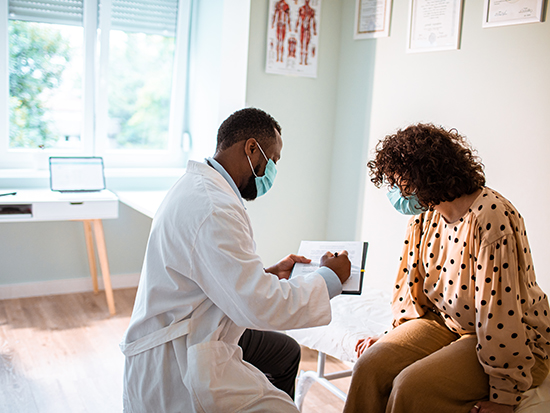Studies Primary care providers advocate for preventive care that can stop problems before they start. show that 25 percent of Americans do not have a primary care provider, with many turning to retail clinics, urgent care centers or emergency rooms for nonemergency medical care. However, if an individual wants to stay healthy, experts at the University of Alabama at Birmingham say having a primary care provider is key.
Primary care providers advocate for preventive care that can stop problems before they start. show that 25 percent of Americans do not have a primary care provider, with many turning to retail clinics, urgent care centers or emergency rooms for nonemergency medical care. However, if an individual wants to stay healthy, experts at the University of Alabama at Birmingham say having a primary care provider is key.
“Primary care providers serve as patients’ first point of contact when health concerns arise and can advocate for preventive care that often stops problems before they start,” said Irfan Asif, M.D., chair of the Department of Family and Community Medicine and associate dean for Primary Care and Rural Health in the UAB Marnix E. Heersink School of Medicine. “Developing a strong relationship with your primary care provider — someone who knows your health history, your family and your story — is an important investment in your own health, both right now and well into the future.”
In a report published by JAMA Internal Medicine, researchers found that adults with primary care providers are more likely to receive important services such as regular cancer screenings, diagnostic testing, diabetes checkups and counseling compared to those without a primary care provider. While many individuals turn to clinics, urgent care centers and emergency departments for their care, William Curry, M.D., professor of medicine in the Heersink School of Medicine and medical director of Health Equity for the UAB Health System, reminds people that these places should not replace a primary care provider.
 “Although clinics and urgent cares are convenient, and often provide exactly the care someone needs at that moment, it’s important to realize they cannot take the place of a primary care provider for the screening, prevention and long-term follow-up that each patient needs,” Curry said. “Primary care providers are experts in managing past medical history, multiple treatments and medications, and the interactions between them. They address the entire patient, developing a customized treatment plan for each individual.”
“Although clinics and urgent cares are convenient, and often provide exactly the care someone needs at that moment, it’s important to realize they cannot take the place of a primary care provider for the screening, prevention and long-term follow-up that each patient needs,” Curry said. “Primary care providers are experts in managing past medical history, multiple treatments and medications, and the interactions between them. They address the entire patient, developing a customized treatment plan for each individual.”
When it comes to having a primary care provider, relationships matter, and patients are more likely to get the correct diagnoses and treatments if they have a long-term relationship with a primary care provider. To find a provider, experts recommend that people do their research, talk to others they trust, check ratings and read reviews online.
Learn more about why it is important to establish a relationship with your primary care provider here.
“Find someone who is available and with whom you feel comfortable,” Curry said. “Check their profile for where they trained and whether they are board-certified. Do they have an internet patient portal to make communication easy for test results or questions? Are office hours a fit for your schedule? What kind of coverage is available from a partner or associate if your physician is out? Do they have nurse practitioners or physician assistants in the practice to improve access? Determine which factors are important to you and find a provider that meets these needs.”
UAB Medicine’s primary care clinics offer comprehensive primary and specialty care services for patients of all ages. Find a primary care provider for you at uabmedicine.org.